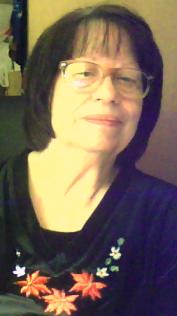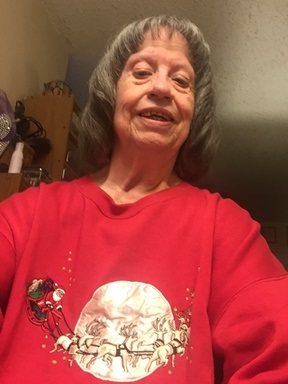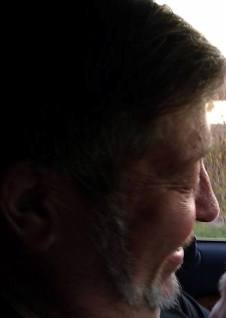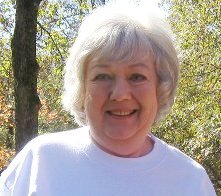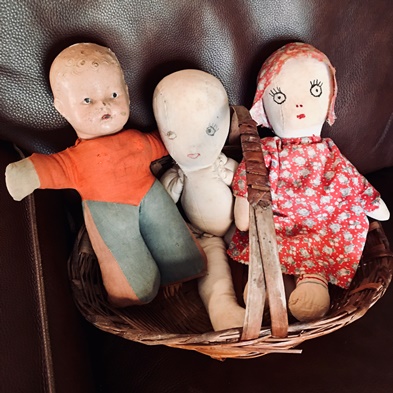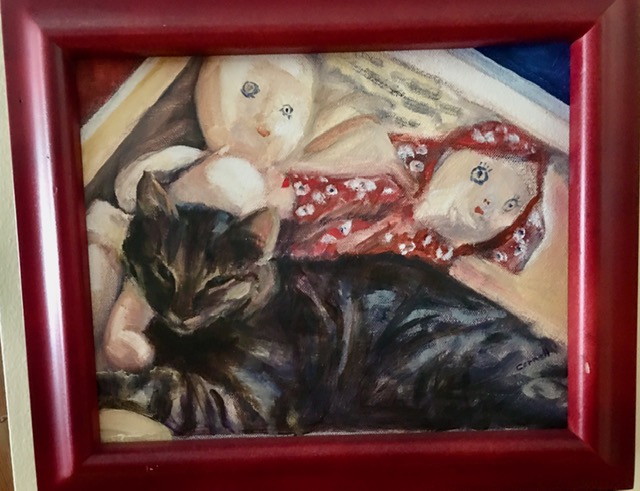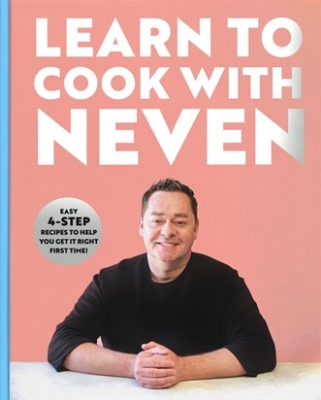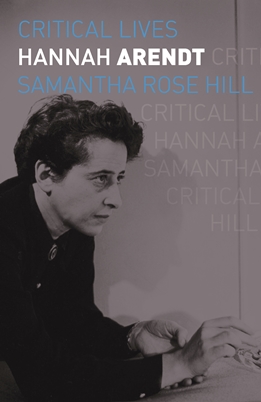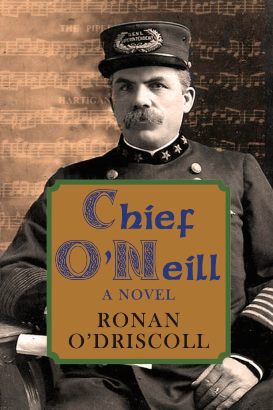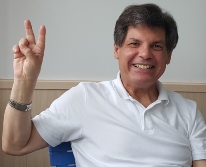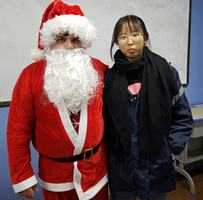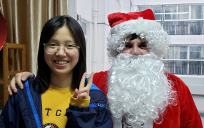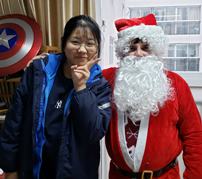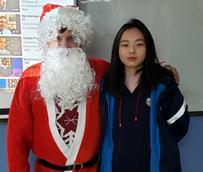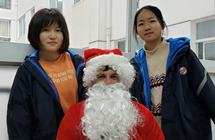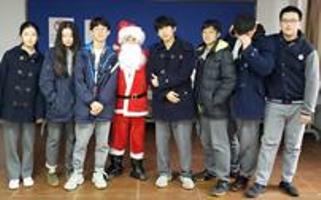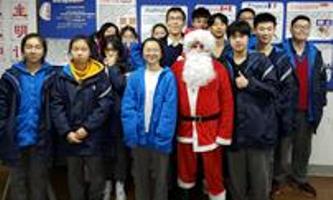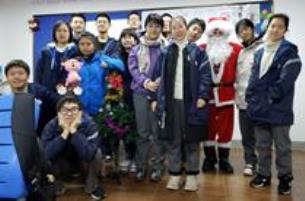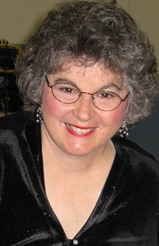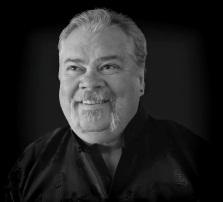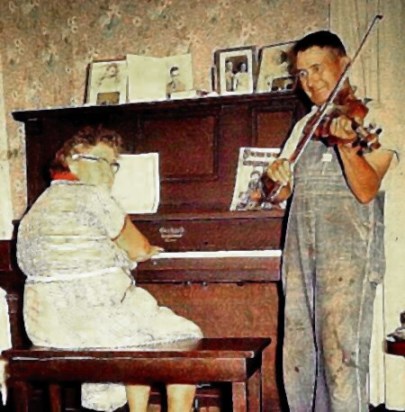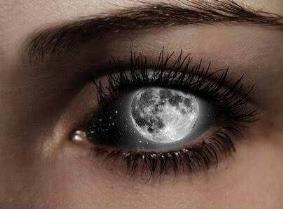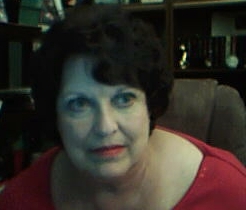
By
Melinda Cohenour
DNA: Complex. Tantalizing.
And Nothing Short of Miraculous
.
The history of mankind's search for its origin began thousands of
years ago. It was not until recent times, however, that the basic
mechanism by which humans are designed and modified was discovered. This
incredible finding had its roots in controversy. There is a vast amount
of information to be absorbed concerning the science surrounding DNA.
Thus, your author proposes to present selected sources to clarify our
basic comprehension of this complex subject over the next several
columns.
The first source which captured my attention was a timeline
of the history of DNA, which has been paraphrased from this article
found online:
https://www.dna-worldwide.com/resource/160/history-dna-timeline.
* Darwin: 1859, The Origin of the Species.
In 1831, Charles Darwin joined an expedition for scientific
exploration. It concerned the study of fossils and a scintillating
theory that the fossils held the secret of one biologic entity's
transformation through successive basic evolution. Darwin began his in
depth research upon his return to his own laboratory. After 20 years
plus of study, testing, and exhaustive documentation of results, in 1859
Darwin published a groundbreaking scientific paper: the Origin of the
Species.
This paper was deemed heretical in that common belief at that
time was that God created everything in the universe in a 7-Day span of
time. This belief discounted the hypothesis now held by most scientific
and biblical scholars that evolution and creation are not in direct
conflict. Most scientists who embrace biblical teaching believe the
explanation set forth centuries ago was presented in a simplistic way
that permitted common folk of that time to accept a basic premise of
their origin.
Darwin's theory, in a nutshell, was that each species evolved
through natural selection. That is, that the creature best adapted to
survive in its habitation developed a mutation to be passed on to its
descendants, thus permanently imprinting its core being with the
essential changes necessary to survival of the overall species.
* Mendel: 1866, the Basic Principles of Genetics.
The next major advancement in the study of genetics came
through the experiments of an Augustinian Monk, Gregor Mendel. He
performed exhaustive studies between 1856 and 1863 on pea plants. He was
attempting to "crossbreed true lines in specific combinations".
Through his studies, Mendel defined the terms of dominant and recessive traits in genetic transformation.
"In his 1866 published paper, Mendel described the action of 'invisible'
factors in providing for visible traits in predictable ways. We now
know that the 'invisible' traits he had identified were genes."
* Miescher: 1869, Identifies "nuclein".
A groundbreaking discovery went virtually unnoticed for more
than 50 years. Friedrich Miescher, a Swiss physiological chemist desired
to isolate and characterize the protein components of white blood
cells.
"However, during the process, he came across a substance that had
unusual chemical properties unlike the proteins he was searching for,
with very high phosphorus content and a resistance to protein
digestion."
His discovery was, in fact, the substance known today as DNA, deoxyribonucleic acid.
* The Eugenics Movement: 1900's.
Around 1883, the term "eugenics" came into play. It was the
predecessor of the attempt to control breeding of human beings based
upon the adherents of the movement to use the science of heredity to
identify "Superior" traits by race. This movement spurred on racist
beliefs that affected various countries and would, ultimately, lead to
horrific research by Nazi scientists.
Thankfully, with increased understanding of the horrors of
institutionalized eugenics by Nazi Germany, the Eugenics movement was
extinguished.
* Mendel's Theories Rediscovered: 1900's.
"In 1900, 16 years after his death, Gregor Mendel's pea plant research
finally made its way into the wider scientific community."
The rediscovery of Mendel's pea plant traits as having recessive
and dominant aspects that were predictable in future generations,
generated studies by Hugo DeVries, a Dutch botanist and geneticist; by
Carl Erich Correns, German botanist and geneticist; and Eric Tschermak
von Seysenegg, an Austrian botanist. Using his experiments as their
basis, each reported hybridization experiment results similar to his
findings.
"In Britain, biologist William Bateson became a leading champion of
Mendel's theories and gathered around an enthusiastic group of
followers. Known as 'Mendelians', the supporters initially clashed with
Darwinians (supporters of Charles Darwin theories.)
At the time, evolution was believed to be based on the selection of
small, blending variations whereas Mendel's variations clearly did not
blend.
It took three decades for Mendelian theory to be sufficiently understood and to find its place within evolutionary theory."
* Garrod: 1902, Mendel's theories associated with a human disease.
Sir Archibald Edward Garrod, a physician who studied medicine
at Oxford, set out to research the human disorder Alcaptonuria. Dr
Garrod collected extensive family history from his patients. He
discussed his findings with William Bateson, the prominent proponent of
Mendel's theories.
Garrod published The Incidence of Alcaptonuria: A Study in Chemical Individuality in 1902.
"This was the first published account of recessive inheritance in humans."
"It was also the first time that a genetic disorder had been
attributed to 'inborn errors of metabolism', which referred to his
belief that certain diseases were the result of errors or missing steps
in the body's chemical pathways. These discoveries were some of the
first milestones in scientists developing an understanding of the
molecular basis of inheritance."
* Avery: 1944, identifies DNA as the 'transforming principle'.
"By the 1940s, scientists' understanding of the principles of
inheritance had moved on considerably - genes were known to be the
discrete units of heredity, as well as generating the enzymes which
controlled metabolic functions. However, it wasn't until 1944 that
deoxyribonucleic acid (DNA) was identified as the transforming
principle."
Avery's studies through many years brought about his discovery
that mixing a harmless form of live pneumococcus with an inert but
lethal form transformed the harmless bacteria into a deadly organism.
Avery joined forces with Colin MacLeod and Maclyn McCarty.
The trio began to purify 20 gallons of collected bacteria. The remaining
substance was deemed to be neither protein nor carbohydrate, but a
nucleic acid ultimately identified as DNA
"In 1944, after much deliberation, Avery and his colleagues published a
paper in the Journal of Experimental Medicine, in which they outlined
the nature of DNA as the 'transforming principle'. Although this paper
was not widely read by geneticists at the time, it did inspire further
research, paving the way for one of the biggest discoveries of the 20th
century."
* Chargaff: 1950, discovers DNA composition is species specific.
Erwin Chargaff, a scientist, was deeply impacted by Oswald
Avery's scientific paper. It changed the course of his scientific focus
and led to some of the most significant findings regarding DNA.
"Chargaff was determined to begin work on the chemistry of nucleic
acids. His first move was to devise a method of analyzing the
nitrogenous components and sugars of DNA from different species."
Fellow scientists, even the elite, were largely ignorant about
nucleic acids. Chargaff's first two papers submitted for publication to
the Journal of Biological Chemistry met resistance. His pursuit of truth
resulted in improved research methods and an ability to rapidly analyze
DNA from a wide range of species.
In 1950, Chargaff summarized his
"two major findings regarding the chemistry of nucleic acids: first,
that in any double-stranded DNA, the number of guanine units is equal to
the number of cytosine units and the number of adenine units is equal
to the number of thymine units, and second, that the composition of DNA
varies between species. These discoveries are now known as Chargaff's
Rules."
* Franklin: 1952, Photographs crystallized DNA fibres.
"Rosalind Franklin was born in London in 1920 and conducted a large
portion of the research which eventually led to the understanding of the
structure of DNA - a major achievement at a time when only men were
allowed in some universities' dining rooms.
"After achieving a doctorate in physical chemistry from Cambridge
University in 1945, she spent 3 years at the Laboratoire Central des
Services Chimiques de L'Etat in Paris, learning the X-ray diffraction
techniques that would make her name. Then, in 1951, she returned to
London to work as a research associate in John Randall's laboratory at
King's college.
"Franklin's role was to set up and improve the X-ray crystallography
unit at King's college. She worked with the scientist Maurice Wilkins,
and a student Raymond Gosling, and was able to produce two sets of
high-resolution photographs of DNA fibers. Using the photographs, she
calculated the dimensions of the strands and also deduced that the
phosphates were on the outside of what was probably a helical structure.
"Franklin's photographs were described as, 'the most beautiful x-ray photographs of any substance ever taken'
by J. D. Bernal, and between 1951 and 1953 her research came close to
discovering the structure of DNA. Unfortunately, she was ultimately
beaten to the Post by Thomas Watson and Francis Crick.
"... PhD student Raymond Gosling then used the samples
(given Maurice Wilkins by Swiss biochemist Rudolf Signer)
to produce the first crystals of DNA and with Rosalind Franklin, use them for the next generation of x-ray images.""
* Watson and Crick: 1953, discover the double helix structure of DNA.
James Watson met Francis Crick in 1951 when he visited
Cambridge University. Their mutual interests inspired Watson to stay at
Cambridge in order to study the structure of DNA at Cavendish
Laboratory.
"Using available x-ray data and model building, they were able to solve
the puzzle that had baffled scientists for decades. They published the
now famous paper in Nature in April 1953 and in 1962 they were awarded
the Nobel prize for physiology or medicine along with Maurice Wilkins.
"Despite the fact that her photographs had been critical to Watson and
Crick's solution, Rosalind Franklin was not honoured, as only three
scientists could share the prize. She died in 1958, after a short battle
with cancer."
* Gannow: 1953, the "RNA Tie Club".
In the frenzy among scientists to decipher the genetic code
following Watson and Crick's discovery, George Gannow, a theoretical
physicist and astronomer created the RNA Tie Club. It was an exclusive
group selected for their interest in "how nucleotide bases were transformed into proteins by the body cells." Gannow then "handpicked
20 members, one for each amino acid - and they each wore a tie carrying
the symbol of their allocated Amino acid. Ironically, the man who was
to discover the genetic code, Marshall Nirenberg was not a member."
* Downs Syndrome: 1959, an additional copy of chromosome 21 linked to Downs Syndrome.
The birth of cytogenetics, the study of chromosomes, occurred
when an additional copy of chromosome 21 was linked to Downs Syndrome.
This was especially significant in the study of DNA overall
as a result of the introduction in the late 1960s and early 1970s of
stains such as Giemsa
"which bind to chromosomes in a non-uniform fashion, creating bands of
light and dark areas. The invention transformed the discipline, making
it possible to identify individual chromosomes, as well as sections
within chromosomes, and formed the basis of early clinical genetic
diagnosis."
* Nirenberg: 1965, first person to sequence the basis in each codon.
In 1957, Nirenberg decided to focus his research on nucleic
acids and protein synthesis while at the National Institute of Health.
Nirenberg and his post doctoral fellow, Heinrich Matthaei,
spent several years attempting to show RNA can trigger protein
synthesis. Their breakthrough experiment came in 1961 which showed that a
"chain of the repeating bases uracil forced a protein chain made of one repeating amino acid, phenylalanine."
Their research on the chromosome coding project was but one
such effort. Nobel laureate Severo Ochoa was also working on the coding
problem. The competition was intense and inspired Nirenberg's colleagues
to put their work on hold to help him in his quest.
"Finally, in 1965, Nirenberg became the first person to sequence the
code. In 1968, his efforts were rewarded when he, Robert W Holley and
Har Gobind Khorana were jointly awarded the Nobel Prize."
* Sanger: 1977, develops rapid DNA sequencing techniques.
Great strides had been made by the early 1970s by molecular
biologists. They lacked the ability, however, to read the precise
nucleotide sequence of DNA.
"In 1943, Cambridge graduate Frederick Sanger started working for A. C.
Chibnall, identifying the free Amino groups and insulin. Through this
work he became the first person to order the amino acids and obtain a
protein sequence, for which he later won a Nobel prize. He deduced that
if proteins were ordered molecules, then the DNA that makes them must
have an order as well.
"In 1962, Sanger... Began working on sequencing RNA, as it was smaller,
but these techniques were soon applicable to DNA and eventually became
the dideoxy method used in sequencing reactions today.
"For his breakthrough in rapid sequencing techniques, Sanger earned a
second Nobel prize for chemistry in 1980, that he shared with Walter
Gilbert and Paul Berg."
* Huntington's Disease: 1983, first mapped genetic disease.
A rare neurodegenerative disease. Late onset, 30 to 45
typically. Marked by loss of motor control, psychiatric symptoms,
dementia, altered personality, and declining cognitive function. Because
the disease is adult onset, many people have passed the mutant Gene to
the next generation long before diagnosis.
"In 1983, a genetic marker link to HD was found on chromosome 4 making
it the first genetic disease to be mapped using DNA polymorphisms.
However, the gene was not finally isolated until 1993"
* Breast and Ovarian Cancer: 1990, 1st Gene associated with
increased susceptibility to familial breast and ovarian cancer is
identified.
Through extensive research with families with predominant
histories of hereditary breast ovarian cancer syndrome, scientists were
able to link to a gene on chromosome 17. The first Gene so identified
was marked BRCA1. It soon became clear not all breast cancer families
were linked to that Gene. Further research identified a second Gene on
chromosome 13 now marked BRCA2. "It is
important to note that although everyone has two copies of both BRCA1
and BRCA2 (tumor suppressor genes), having one altered copy of either
Gene can lead to an accumulation of mutations which can lead to tumor
formation."
* THE HUMAN GENOME PROJECT: 1990, a program to map the human genome.
The Human Genome Project began and was funded by the US
Department of Energy and the National Institute of Health. It was
recommended in 1988, but officially started in 1990. Multiple purposes
existed for the initiation of this project, not only the advancement of
medicine, but for other purposes such as the detection of mutations that
nuclear radiation might cause.
"The project's goals included: mapping the human genome and determining
all 3.2 billion letters in it, mapping and sequencing the genomes of
other organisms, if it would be useful to the study of biology,
developing technology for the purpose of analyzing DNA and studying the
social, ethical and legal implications of genome research."
* Haemophilus Influenza: 1995, first bacterium genome sequenced.
This milestone was achieved as a method of demonstrating the power and effectiveness of "shotgun" sequencing.
"Haemophilus influenza is a bacterium that can cause meningitis and ear and respiratory infections in children."
After only a year of intense work by J. Craig Venter and his
colleagues, their remarkable achievement proved the effectiveness of
shotgun sequencing.
* Bermuda Principles: 1996, principles established among leaders of the Human Genome project in Bermuda.
Designed to ensure that 'sequence information led as rapidly as possible to advances in healthcare and research', leaders
of the Human Genome project agreed genome sequencing data should be
made freely available in the public domain within 24 hours of
generation. Further agreed ". . .large scale sequencing centers would
inform the Human Genome Organization (HUGO) of any intention to
sequence particular regions of the genome. HUGO will then place
information on their website and direct visitors to the specific centers
for more detailed information regarding the current status of
sequencing.
~ ~ ~ ~ ~ ~ ~ ~ ~ ~ ~ `
Over the next few months, our columns will focus on DNA and how
it affects our family research.. Next month, we will continue with the
history of DNA timeline. It will also include a glossary of terms, words,
and phrases essential to communicating clearly about DNA.
Next we will explore the Human Genome project in greater
depth.
Finally, our intention is to illustrate how these incredible advances
in DNA permit us to utilize this vast knowledge to identify the sources
of our very own inherited genetic makeup.
All this magnificent knowledge at our fingertips through "Armchair Genealogy."
Click on author's byline for bio and list of other works published by Pencil Stubs Online.
